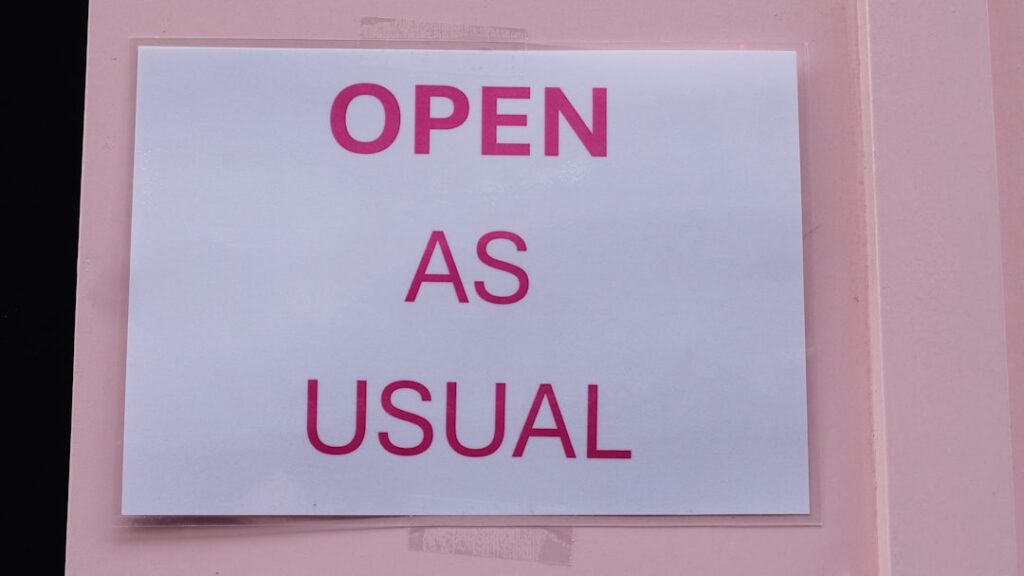In the realm of political philosophy, few works have had as profound an impact as Karl Popper’s “The Open Society and Its Enemies.” Written in the aftermath of World War II, this seminal text emerged as a powerful critique of totalitarian ideologies and a passionate defense of liberal democracy. Popper, an Austrian philosopher, sought to articulate a vision of society that embraced pluralism, critical thinking, and the importance of individual freedoms. As we delve into the core tenets of his philosophy, we find ourselves grappling with the implications of an open society in our contemporary world.
Popper’s work is not merely an academic exercise; it serves as a clarion call for vigilance against the encroachment of authoritarianism. He argues that societies must remain open to criticism and change, allowing for the evolution of ideas and policies. In doing so, he challenges us to reflect on our own beliefs and the structures that govern our lives.
By examining the principles laid out in “The Open Society,” we can better understand the delicate balance between freedom and order, and the responsibilities that come with living in a democratic society.
Key Takeaways
- Karl Popper’s “The Open Society” is a seminal work that explores the concept of open societies and their importance in modern political thought.
- Open society is characterized by its emphasis on individual freedom, democracy, and the rejection of totalitarianism.
- Popper critiques totalitarianism for its suppression of individual freedom and its tendency to lead to oppression and violence.
- Democracy plays a crucial role in an open society, as it allows for the peaceful resolution of conflicts and the protection of individual rights.
- Individual freedom is essential in an open society, as it allows for the flourishing of diverse ideas and the pursuit of personal fulfillment.
The Concept of Open Society
At the heart of Popper’s philosophy lies the concept of the open society, which he defines as a social order characterized by transparency, inclusivity, and a commitment to rational discourse. In an open society, individuals are encouraged to express their opinions freely, engage in critical debate, and challenge prevailing norms. This environment fosters innovation and progress, as diverse perspectives contribute to a richer understanding of complex issues.
We find that Popper’s vision stands in stark contrast to closed societies, where dissent is stifled, and conformity is enforced. The open society is not merely an ideal; it is a practical framework for governance that prioritizes human rights and individual autonomy. Popper emphasizes that such a society must be built on the principles of democracy, where power is derived from the consent of the governed.
This democratic foundation allows for the peaceful resolution of conflicts and the ability to adapt to changing circumstances. As we reflect on our own experiences within democratic systems, we recognize the importance of maintaining an open dialogue and ensuring that all voices are heard.
Critique of Totalitarianism

Popper’s critique of totalitarianism is one of the most compelling aspects of “The Open Society.” He argues that totalitarian regimes thrive on dogma and absolute truths, which stifle creativity and suppress dissent. In such systems, individuals are often reduced to mere cogs in a machine, stripped of their autonomy and agency. We see echoes of this critique in various historical contexts, where authoritarian regimes have sought to control not only political power but also the very thoughts and beliefs of their citizens.
By exposing the dangers of totalitarianism, Popper urges us to remain vigilant against ideologies that claim to possess ultimate truths. He posits that no ideology should be immune to scrutiny or criticism; rather, it should be subject to continuous evaluation and revision. This perspective encourages us to embrace uncertainty and recognize that our understanding of the world is always evolving.
In doing so, we cultivate a culture of inquiry that empowers individuals to challenge oppressive systems and advocate for change.
The Role of Democracy in an Open Society
Democracy plays a pivotal role in Popper’s vision of an open society. He asserts that democratic governance is essential for protecting individual freedoms and ensuring that power remains accountable to the people. In a democracy, citizens have the right to participate in decision-making processes, voice their concerns, and hold their leaders accountable.
This participatory aspect fosters a sense of ownership over societal outcomes and encourages civic engagement. Moreover, Popper emphasizes that democracy is not merely about casting votes; it is about creating an environment where diverse opinions can coexist and be debated openly. He warns against the dangers of majoritarianism, where the majority can impose its will on minority groups without regard for their rights.
Instead, he advocates for a system that safeguards minority interests and promotes dialogue among differing viewpoints.
The Importance of Individual Freedom
Individual freedom is a cornerstone of Popper’s open society. He argues that personal autonomy is essential for human flourishing and creativity. In an environment where individuals are free to pursue their interests and express their beliefs without fear of retribution, innovation can thrive.
We recognize that many of history’s greatest advancements have emerged from individuals who dared to think differently and challenge the status quo. Popper also highlights the interconnectedness of individual freedom and social progress. When people are empowered to think critically and engage in meaningful discourse, they contribute to a collective understanding that benefits society as a whole.
This dynamic interplay between individual rights and communal well-being underscores the importance of protecting freedoms in all their forms. As we reflect on our own lives, we see how our freedoms shape our identities and influence our contributions to society.
The Limits of an Open Society

While Popper champions the ideals of an open society, he also acknowledges its limitations. He recognizes that absolute freedom can lead to chaos if not tempered by responsibility and ethical considerations. In his view, an open society must establish boundaries to protect itself from those who would exploit its openness for nefarious purposes.
This delicate balance requires constant vigilance and a commitment to upholding democratic values. Furthermore, Popper warns against the potential for complacency within open societies. He argues that citizens must actively engage in safeguarding their freedoms rather than taking them for granted.
This involves not only participating in democratic processes but also fostering a culture of critical inquiry and debate. As we consider our roles within our communities, we must remain aware of the responsibilities that accompany our freedoms and strive to create an environment where all individuals can thrive.
Popper’s Influence on Political Thought
Karl Popper’s contributions to political thought extend far beyond “The Open Society.” His ideas have influenced generations of philosophers, political scientists, and activists who seek to promote democratic values and challenge authoritarianism. His emphasis on critical rationalism has inspired movements advocating for transparency, accountability, and human rights across the globe. Moreover, Popper’s work has sparked important discussions about the nature of truth and knowledge in political discourse.
By advocating for a philosophy grounded in skepticism and inquiry, he has encouraged us to question dogmas and embrace uncertainty as a catalyst for growth. As we engage with contemporary political debates, we find ourselves drawing on Popper’s insights to navigate complex issues with nuance and critical thinking.
Contemporary Relevance of “The Open Society”
In today’s world, where authoritarianism appears to be resurging in various forms, Popper’s “The Open Society” remains strikingly relevant. The challenges posed by misinformation, polarization, and populism underscore the need for societies committed to openness and critical discourse. As we witness attempts to undermine democratic institutions and suppress dissenting voices, we are reminded of Popper’s warnings about the fragility of freedom.
While digital platforms offer unprecedented opportunities for connection and dialogue, they also present challenges related to privacy, surveillance, and manipulation. In this context, Popper’s call for an open society serves as a guiding principle for navigating these complexities while safeguarding individual freedoms.
As we reflect on our own roles within society, we must embrace Popper’s vision by advocating for transparency, inclusivity, and critical engagement. By doing so, we contribute to building a more resilient open society—one that honors individual freedoms while remaining vigilant against the forces that seek to undermine them. In this endeavor, we find not only inspiration from Popper’s work but also a renewed commitment to fostering a world where diverse voices can thrive in harmony.
In his seminal work, “The Open Society and Its Enemies,” Karl Popper delves into the philosophical underpinnings of open societies, advocating for democratic governance and the protection of individual freedoms against totalitarianism. A related article that further explores themes of open societies and the challenges they face in the modern world can be found on Hellread. This article provides a contemporary analysis of how Popper’s ideas continue to resonate today, especially in the context of global political dynamics. For more insights, you can read the article by visiting this link.
FAQs
What is The Open Society by Karl Popper?
The Open Society and Its Enemies is a work of political philosophy by Karl Popper, first published in 1945. It is a critique of totalitarianism and a defense of liberal democracy and the principles of an open society.
What are the main ideas in The Open Society?
The main ideas in The Open Society include the critique of historicism, the defense of individual freedom and democracy, and the importance of critical thinking and open debate in society.
What is the significance of The Open Society?
The Open Society is significant for its defense of liberal democracy and its critique of totalitarian ideologies. It has had a profound influence on political and social thought, and continues to be relevant in discussions about the nature of open and free societies.
How does The Open Society relate to Karl Popper’s other works?
The Open Society is closely related to Popper’s other works on the philosophy of science and the principles of a free society. It builds on his ideas about the importance of critical thinking and the need for open debate in society.
What impact has The Open Society had on political thought?
The Open Society has had a significant impact on political thought, particularly in its defense of liberal democracy and its critique of totalitarianism. It has influenced political theorists, policymakers, and activists in their understanding of the principles of an open society.







